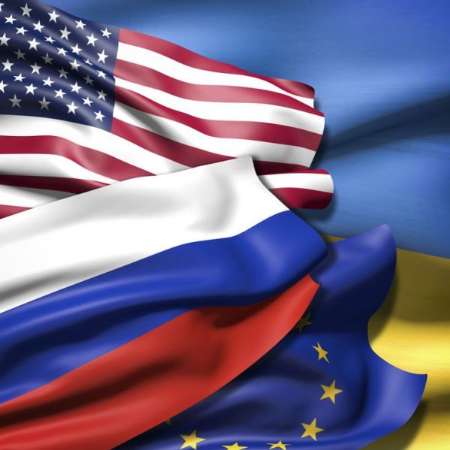The recent war rhetoric traded between Moscow and London tended to add fuel to the fire when the latter accused Kremlin of launching an information war against the EU countries aimed at undermining the bloc's collective strength.
Russia 'is seeking to weaponize information' and 'sow discord in the West and undermine our institutions', British Prime Minister Theresa May said, addressing the 2017 EU 2017 Eastern Partnership Summit.
'We must be open-eyed to the actions of hostile states like Russia which … attempt to tear our collective strength apart,' May said at the event, where the EU leaders met with their six eastern partners — Armenia, Azerbaijan, Belarus, Georgia, the Republic of Moldova, and Ukraine — to agree on the future priorities of their partnership.
The hawkish approach by British premier made Moscow react soon with Russian Foreign Minister Sergei Lavrov cautioning London about trying to implant anti-Russian sentiments.
'The overwhelming majority of the EU countries realize it will be another attempt made by improper means and that it is counterproductive and futile to implant anti-Russian sentiment within any contacts with the [Commonwealth of Independent States] CIS member countries,' Lavrov said.
This is while the North Atlantic Treaty Organization (NATO) is following its eastward expansion plan to include further former Soviet satellite states on the western flanks of Russia as well as other countries in the region, something Moscow pledges to confront.
Russian President Vladimir Putin has vowed military response to 'eliminate NATO threat' if Sweden joins the US-led NATO military alliance.
'NATO is building a new military security situation that we cannot ignore, that we should address using our own military instruments,' Russia’s Ambassador to NATO, Alexander Grushko said in Brussels, according to the Associated Press.
Following the opening of NATO's Liaison Office in Moldova, some observers posited that it was the outcome of the rhetoric war between some European countries and Moscow and now the landlocked country in eastern Europe is turning to be the field for the NATO-Russian information battle.
'NATO's main goal is to further strengthen its borders in the context of the confrontation with Russia, which is unfolding primarily in eastern Europe,' said Andrey Devyatkov, a research fellow of the Institute of Economics, Russian Academy of Sciences.
'Therefore, it is not a coincidence that NATO announced about a special program to improve the military potential of Moldova (as well as Georgia and Jordan) in September 2014 when the entire West was shocked by the events in Ukraine,' Devyatkov said.
On the other hand, Russia is also trying to enhance its global military presence.
“Russia has massively invested in its marine capability, especially in submarines,” Jens Stoltenberg NATO Secretary General said, according to Frankfurter Allgemeine Sonntagszeitung.
“Russia’s submarine activity is now at its highest level since the Cold War,” Stoltenberg said, pointing to thirteen additional submarines since 2014.
Russian submarines are operating all over the Atlantic, as well as “closer to our shores,” he added.
This puts under threat the trans-Atlantic military alliance by possibly undermining links between European and North American allies, he warned.
But the million-dollar question is why some media outlets in Europe, mainly those of Britain, continue beating drums of war louder and louder, claiming that the third World War is potentially on the horizon as a result of the rising tensions between Moscow and Western Europe.
Despite all the rhetoric war, analysts maintain that a military confrontation is almost out of question.
Brussels and Washington are closely working on promoting internal reforms in the countries in eastern Europe.
Three years ago, the United States withdrew its forces from Europe, but now it is mulling over deploying troops in the region again to allegedly ward off a probable Russian attack.
Eastern Europe holds great interests both for the European Union and the US-led NATO military alliance.
NATO's eastward expansion primarily is meant to safeguard the US military and political interests and to deter Russia.
The United States considers Russia as the most important threat against its hegemony and global leadership.
Through creating tensions and crises between Moscow and its neighbors and allies, Washington is after weakening Russia's power and influence in Europe and other parts of the world.
By: Research Department of the Islamic Republic News Agency
Translator: Reza Bahar
2044**2050
Follow us on Twitter @IrnaEnglish
Publish Date: 30 December 2017 - 17:31

Tehran, Dec 30, IRNA – Despite speculations suggesting rising tensions in relations between Russia and Europe, experts believe that a military conflict between the two sides is not probable, as their interests are only guaranteed through continuing cooperation.